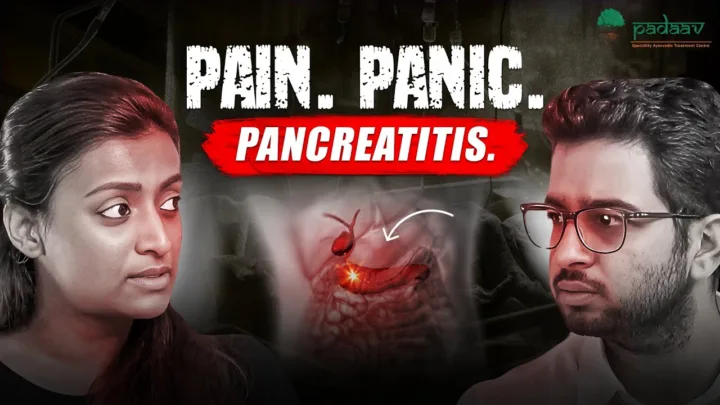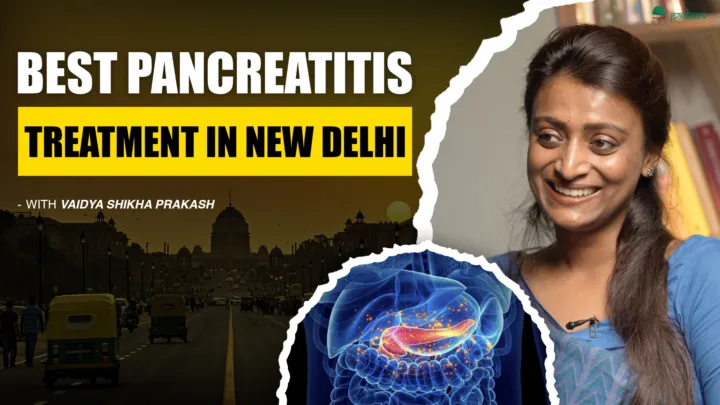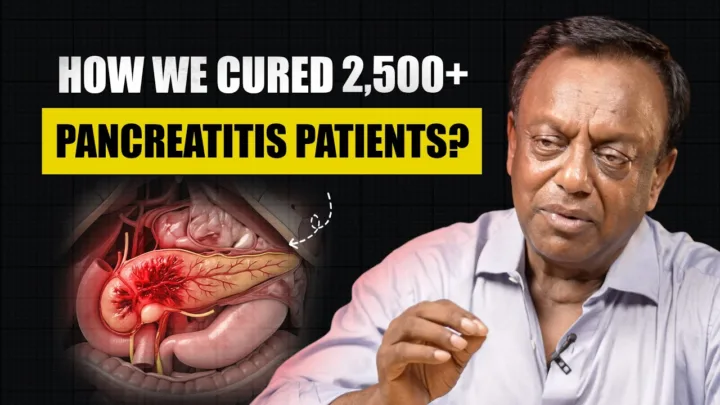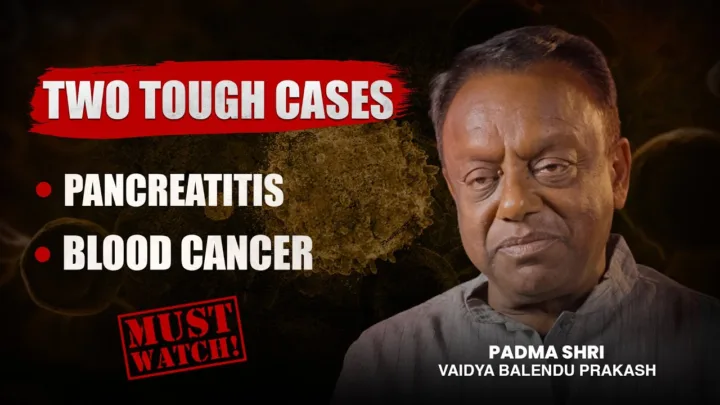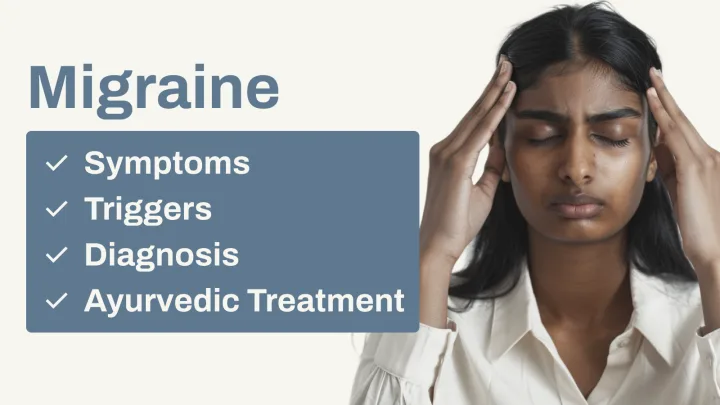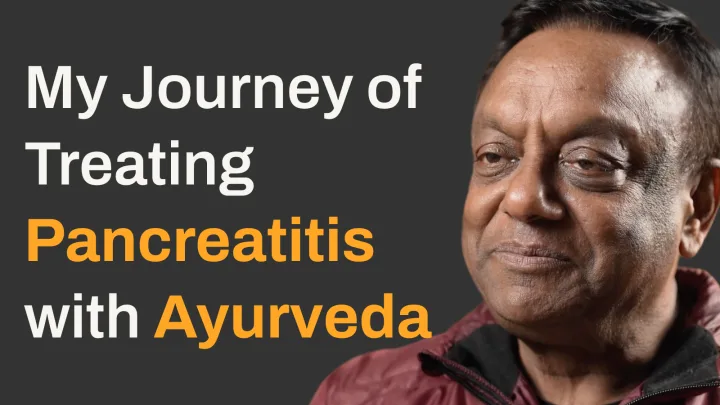In a candid and compassionate Q&A session at the Padaav Speciality Ayurvedic Treatment Center, Vaidya Balendu Prakash engaged in a heart-to-heart dialogue with patients suffering from various forms of pancreatitis. Hailing from different parts of the country, these patients and their families shared their struggles, fears, and hopes, while Vaidya Prakash offered not just medical advice, but a holistic perspective on the disease and life itself. This conversation, which he calls “Vaid-Rogi Samvaad” (Physician-Patient Dialogue), underscores his belief that a cure is not merely about writing a prescription, but about a deep, two-way connection between the doctor and the patient.
Understanding the Disease: More Than Just a Stomach Ache
Vaidya Prakash begins by highlighting a critical point: pancreatitis is a rare and often-misunderstood disease. Until a person is diagnosed, they may not even know it exists. The conversation reveals that while many believe this is a disease of adults, it is increasingly affecting younger individuals, with patients as young as 11 years old.
He explains that pancreatitis has a two-word definition: it’s “irreversible” and “progressive.” This means that once the pancreas is damaged, it cannot return to its original state, and if left untreated, the damage will worsen. The goal of the treatment, therefore, is to halt this progression.
A key distinction is made between acute and chronic pancreatitis. While an acute attack can be measured by enzymes in the thousands, a chronic condition is defined by physical changes (calcification, strictures) visible in imaging like ultrasound and MRI. Some patients experience excruciating pain, while others, like the man from Nepal, remain asymptomatic until they suffer from sudden weight loss or uncontrolled blood sugar, which are also key indicators of the disease.
The Root Causes: Dispelling Myths and Embracing Reality
A common misconception is that alcohol is the sole cause of pancreatitis. Vaidya Prakash challenges this by sharing data from his own research, which shows that 70% of his patients have never consumed alcohol. He notes that the main culprits are often different:
- Genetics: He confirms that there is a strong genetic disposition, and if a family member has the disease, the probability of it occurring in others is high.
- Lifestyle: He emphasizes the importance of a disciplined lifestyle, which Ayurveda refers to as “Dinacharya” (daily routine) and “Ritucharya” (seasonal routine). Irregular sleeping habits, especially staying up late, are a major trigger as they increase oxidative stress on the liver and pancreas.
- Stress and Anxiety: Citing an old Hindi proverb, “Chinta Chita Sama” (anxiety is like a pyre), he explains that stress and anxiety are the root cause of many diseases, including pancreatitis. He encourages patients to let go of control and worry, and instead, focus on their actions without being attached to the outcome.
- Diet: Sudden, extreme dieting and eating habits that put an undue load on the digestive system can be triggers. He advises a balanced diet that includes all food groups.
The Padaav Protocol: A Holistic Path to Recovery
The Padaav treatment is built on a three-pronged approach:
- Medicine: The core medicine is a herbal formulation called “Amar,” which Vaidya Prakash’s father first developed in 1972. It is not an overnight cure, and patients are on the medication for an extended period. The aim is not just to provide relief but to stop the disease from progressing.
- Dietary Discipline: Patients are served food that is fresh, hot, and measured in small quantities. The focus is on a balanced, wholesome diet that is easy to digest. He advises patients to “eat with their eyes closed” and stop eating when they feel 80% full. He humorously points out that even “puri” (fried bread) and “samosa” are served to prove to patients that they can be normal, as long as they eat with discipline and in moderation.
- Physical and Mental Rest: This is the most critical pillar. Vaidya Prakash explains that during the initial months, the body and mind must be at complete rest to allow the inflamed pancreas to heal. He shares an anecdote about a patient who had a relapse after playing badminton, which showed him the importance of avoiding physical exertion.
Answering the Patients’ Questions: A Glimpse into the Dialogue
- On the Plight of a Child: A father, a retired army man, shares his anguish over his 11-year-old son’s suffering. The boy has had three episodes and is terrified of the invasive procedures required by allopathic medicine. Vaidya Prakash reassures him that the genetic form of pancreatitis, while often the most severe, has shown positive results at Padaav. He tells the father that the boy’s fear of pain will be his greatest motivator to follow the protocol.
- On Asymptomatic Pancreatitis: A 30-year-old consultant from the Government of India, diagnosed with very high blood sugar and chronic calcific pancreatitis, is surprised because he never felt any pain. Vaidya Prakash explains that pain is not a universal symptom and that sudden weight loss or uncontrolled blood sugar are also key indicators. He also notes that he has seen patients with a similar history, and while the pancreas will never be “normal,” its progression can be stopped.
- On Anxiety and Gastritis: A patient who has had the disease for 17 years asks about the role of anxiety and gastritis. Vaidya Prakash explains that both are significant triggers. Anxiety is the root of many diseases, and gastritis indicates an acid-alkali imbalance in the body, which puts an extra load on the pancreas.
- On Living a “Normal” Life: Patients ask if they will ever be able to travel or work normally. Vaidya Prakash advises them to “change their profession, not their life.” He gives examples of patients who adjusted their work to a less strenuous role and are now leading happy, healthy lives. The goal is to compromise slightly to live a full life, rather than running at an unsustainable pace.
- On Relapses: A patient who had a relapse after returning home asks why. Vaidya Prakash, in his characteristic style, responds, “I am not a hypnotist!” He explains that the treatment is effective only if the patient follows the discipline taught at Padaav, which includes a balanced diet and regular routine.
- On Diabetes: A father whose son’s blood sugar has improved asks if the diabetes will be cured. Vaidya Prakash is very clear: he does not treat diabetes directly. He himself has diabetes and takes insulin four times a day. He clarifies that if the diabetes is a direct result of pancreatitis, it may improve, but the patient must always remain cautious and disciplined.
The Power of Perspective: A Blessing in Disguise
Throughout the session, Vaidya Prakash offers profound insights, telling patients that this disease is a “blessing in disguise.” He shares his own story of facing multiple health issues and being forced to slow down, which led to a different, more meaningful life, including publishing 11 research papers. He tells a young patient to not mourn his illness, but to see it as a chance for a new beginning. He concludes with the words of a shloka from Ayurveda: “Sarvam parityajya shariram anupalayat,” which means, “Leave everything and protect your body, because without the body, everything is lost.” This serves as a powerful reminder that health is the most important asset, and it is worth every bit of discipline and effort.

